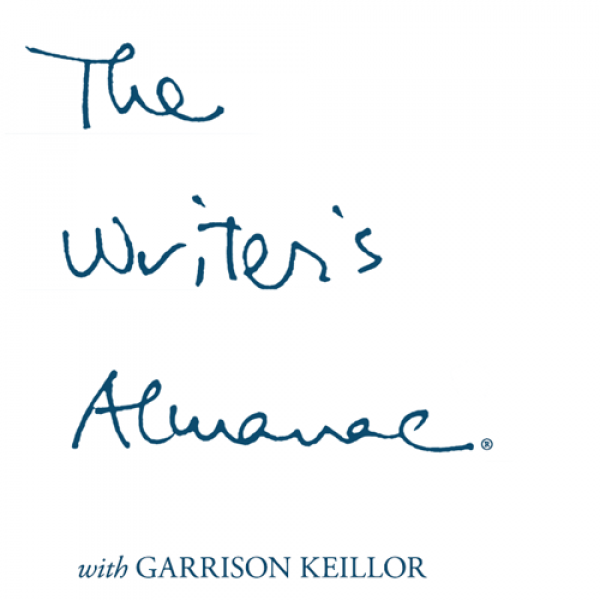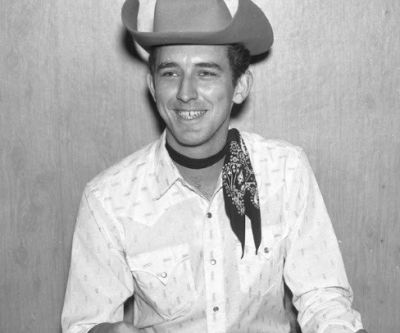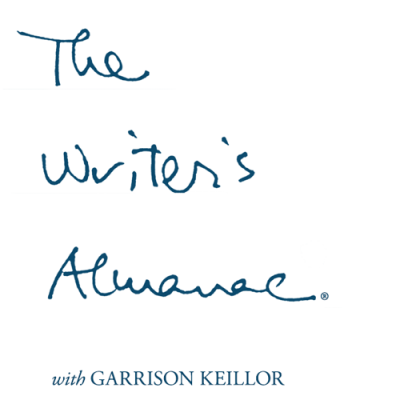December 20, 2018
Tuesday
8:00 p.m.
Minneapolis, MN
Test schedule
A live performance with Robin and Linda Williams at the Cedar Cultural Center
May 20, 2018
Sunday
3:00 p.m.
Lexington, MA
Lexington, MA
A live performance at the Saenger Theatre
April 10, 2018
Tuesday
8:00 p.m.
Tulsa, OK
Tulsa, OK
A live performance at the Brady Theater
March 17, 2018
Saturday
8:00 p.m.
Long Beach, CA
Long Beach, CA
A live performance at the Carpenter Performing Arts Center
March 15, 2018
Thursday
7:00 p.m.
Mobile, AL
Mobile, AL
A live performance at the Saenger Theatre
From “Good-bye” by Ralph Waldo Emerson. Public domain. (buy now)
Good-bye, proud world! I’m going home:
Thou art not my friend, and I’m not thine.
Long through thy weary crowds I roam;
A river-ark on the ocean brine,
Long I’ve been tossed like the driven foam;
But now, proud world! I’m going home.
Good-bye to Flattery’s fawning face;
To Grandeur with his wise grimace;
To upstart Wealth’s averted eye;
To supple Office, low and high;
To crowded halls, to court and street;
To frozen hearts and hasting feet;
To those who go, and those who come;
Good-bye, proud world! I’m going home.
It’s the birthday of novelist Iris Murdoch, (books by this author) born in Dublin (1919). But she was a philosopher before she was a novelist. As a student, she wrote in her journal, “For me, philosophical problems are the problems of my own life.” She took classes at Cambridge from Ludwig Wittgenstein, and her first book was a study of Jean-Paul Sartre and existentialism, published in 1953. In the meantime, she had written five novels, but she threw all of them away because she wasn’t satisfied with them. In 1954, she finally finished a novel she was proud of, about an Irishman’s adventures in London and Paris. It was published as Under the Net, and it was a great success.
It’s the birthday of a man whose ideas are well-known (if not well-understood) to humanities students around the world and especially in the United States. French philosopher Jacques Derrida, (books by this author) the founder of “deconstruction,” was born 80 years ago today in El Biar, Algeria (1930).
He’s the author of more than 40 notoriously dense books, including Of Grammatology (1976), Specters of Marx (1993), Of Spirit (1989), Resistances of Psychoanalysis (1998) and The Animal That Therefore I Am (2008). [Note: Dates refer to English translations.]
Derrida generally refused to define “deconstruction.” When asked to do so once in an interview he said, “It is impossible to respond. I can only do something which will leave me unsatisfied.” One time when giving a lecture he said, “Needless to say, one more time, deconstruction, if there is such a thing, takes place as the experience of the impossible.”
But lots of other people have tried to explain what deconstruction is. Terry Eagleton gave a pretty straightforward version in his reference book Literary Theory: He said it’s “the name given to the critical operation by which oppositions can be partly undermined, or by which they can be shown partly to undermine each other in the process of textual meaning.”
People have called deconstruction “literature’s revenge on philosophy,” “a positive device for making trouble,” and even “a sustained assault on the Western philosophical tradition.” Critic Peter Lennon said, “Deconstruction is a theory which appears to lend itself most readily to babbling obfuscation.”
Derrida’s most famous words: “There is nothing outside the text.”
It was on this day in 1838 that Ralph Waldo Emerson (books by this author) delivered “The Divinity School Address” at Harvard. There were about 100 people in the audience, including six of the seven graduates of Harvard Divinity School, as well as faculty, ministers, and former graduates. Emerson had graduated from Harvard Divinity in 1826, and the graduating students had chosen him as the speaker for this event. The year before, he had given a lecture called “The American Scholar” to the Harvard Phi Beta Kappa society. It was controversial but popular, and the students were eager to have him back.
Emerson had been a Unitarian minister, but he had resigned a few years earlier. He was skeptical of the Communion ritual, and of the whole concept of public prayer — he felt it should be a private, individual expression. Emerson was becoming more interested in Transcendentalism, and in 1836, two years before his Divinity School address, he had laid out his philosophy in his now-famous essay Nature. But Nature was not a big seller at the time — it took more than 12 years to sell out of its first edition of 500 copies.
This time his lecture was too controversial for the authorities at Harvard. Emerson denounced the current state of Christianity, saying that as it was practiced, “Christianity destroys the power of preaching, by withdrawing it from the exploration of the moral nature of man, where the sublime is, where are the resources of astonishment and power. What a cruel injustice it is to that Law, the joy of the whole earth, which alone can make thought dear and rich; that Law whose fatal sureness the astronomical orbits poorly emulate, that it is travestied and depreciated, that it is behooted and behowled, and not a trait, nor a word of it articulated. The pulpit in losing sight of this Law, loses its reason, and gropes after it knows not what. And for want of this culture, the soul of the community is sick and faithless. […] The true Christianity — a faith like Christ’s in the infinitude of man — is lost.”
Many in the audience were incensed by Emerson’s speech, particularly the older faculty and ministers. Andrew Norton, a powerful Harvard theologian, declared the lecture “the latest form of infidelity.” It was 30 years before Emerson was invited back to speak at Harvard. But there were younger audience members who were inspired by the lecture, like the minister Theodore Parker, who went home and wrote in his journal: “Proceeded to Cambridge, to hear the valedictory sermon by Mr. Emerson. In this he surpassed himself as much as he surpasses others in the general way. I shall give no abstract. So beautiful, so just, so true, and terribly sublime was his picture of the faults of the Church in its present position. My soul is roused, and this week I shall write the long-meditated sermons on the state of the Church and the duties of these times.”
Two weeks later, Emerson wrote a letter to a friend and mentor, an older minister named Henry Ware, who had been critical of Emerson’s speech. Emerson wrote: “What you say about the discourse at Divinity College, is just what I might expect from your truth and charity, combined with your known opinions. I am not a stock or stone, as one said in the old time; and could not but feel pain in saying some things in that place and presence, which I supposed might meet dissent, and the dissent, I might say, of dear friends and benefactors of mine. Yet, as my conviction is perfect in the substantial truth of the doctrine of this discourse, and is not very new, you will see, at once, that it must appear to me very important that it be spoken; and I thought I would not pay the nobleness of my friends so mean a compliment, as to suppress my opposition of their supposed views out of fear of offense. I would rather say to them, these things look thus to me; to you, otherwise. Let us say out our uttermost word, and be the all-pervading truth, as it surely will, judge between us. […] I heartily thank you for this renewed expression of your tried toleration and love.”
It’s the birthday of novelist Richard Russo (books by this author), born in Johnstown, New York (1949). He grew up in Gloversville, a New York town that had once been the glovemaking capital of America. Most of his extended family worked in the local tanneries, but the town’s industry was dying by the time Russo was growing up. When it came time to go to college, Russo wanted to be an academic, and he chose the University of Arizona mostly because he wanted to get as far away from Gloversville as possible. He came home in the summers to work construction with his father, and he was surprised to discover that he actually liked construction work — the camaraderie of the long days, followed by nights at the bar.
Russo went the route of an academic and got a Ph.D. While he was working on his dissertation, he decided to try some fiction classes to break up the monotony of an academic thesis. He ended up writing a novel about a middle-aged woman in Arizona. His professor told him that it was terrible, but that the one good part was a scene set in a small East Coast town. He destroyed the novel and accepted a teaching position in Illinois. He started a second novel, this time about life in a small tannery town in New York, called Mohawk (1986). He went on to write many novels about small-town life, including Nobody’s Fool (1993); Empire Falls (2001), which won the Pulitzer Prize; The Bridge of Sighs (2007); That Old Cape Magic (2009); and Everybody’s Fool (2016). Even though he is a successful novelist and screenwriter, he believes that is only one version of himself. He said: “There is another Richard Russo who is still in Gloversville, sitting on a barstool. Someone very different. Someone angrier. Certainly not a writer. I doubt we would like each other very much.”
He said: “Novelists — especially novelists who paint on a broad canvas — are generally not given to undue anxiety, I think. The task is so enormous that if we ever really thought about what we were letting ourselves in for, we’d never begin. Early on we learn to worry only about what we do today. If I get my two or three pages written on Monday my day’s work is done. It’s useless to worry about Friday or four years from Friday. Pages need our attention; books take care of themselves.”
Today is the birthday of Thomas Bulfinch (books by this author), born in Newton, Massachusetts (1796). He wrote several books, but he is best remembered for his three-volume study of mythology and legends. The first volume, The Age of Fable (1855), was a retelling of classic Greek and Roman myths; the second, The Age of Chivalry (1858), covers the legends of King Arthur, Robin Hood, and other British folk tales; and the third, Legends of Charlemagne (1863), recounts stories from France, Germany, and Africa. The three books were later combined into one volume, entitled Bulfinch’s Mythology, first published in 1881 and never out of print since. The book entertained Victorian adults and children, and made mythology accessible and available to the common American reader for the first time.
In the introduction to The Age of Fable, Bulfinch wrote: “Mythology is the handmaid of literature; and literature is one of the best allies of virtue and promoters of happiness.”






